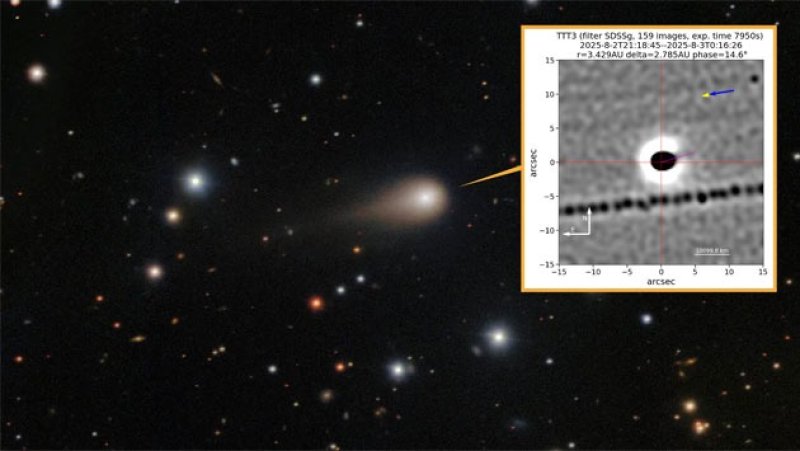
First detected in July this year, 3I/Atlas travels through space at a remarkable 68 kilometers per second and is not bound by the Sun’s gravity. NASA said the object will pass about 210 million kilometers from the Sun today (30).
Scientists believe the flyby presents a valuable opportunity to study its composition, determine whether it is a comet or asteroid, and search for possible traces of organic matter.
Similar interstellar visitors — ‘Oumuamua in 2017 and 2I/Borisov in 2019 — previously captivated the scientific community with their unusual trajectories and origins beyond our solar system.
Astronomers have assured that 3I/Atlas poses no threat to Earth or the Sun, as its path keeps it safely distant from both.